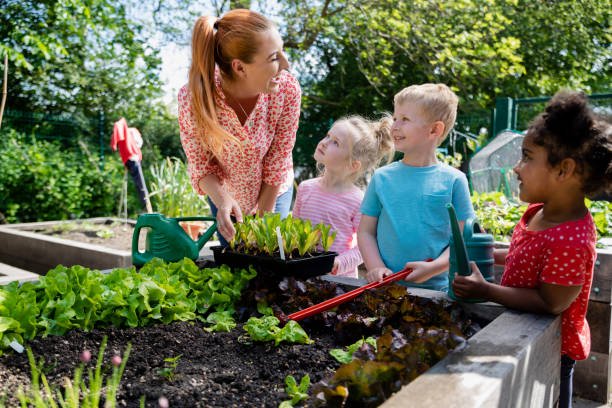Green from the Start: Growing Environmental Stewards in Nursery Classrooms
How Nursery Schools Can Foster Early Eco-Awareness

In a world increasingly shaped by environmental challenges, it has never been more important to raise children who care deeply about the planet they live on. While sustainability may seem like a complex concept reserved for older students, nursery classrooms are proving to be the ideal environment for planting the earliest seeds of eco-consciousness.
By integrating nature into learning, young children can begin to understand the importance of caring for their surroundings and develop habits that last a lifetime.
In leading nurseries walton on thames, environmental education begins with the basics—hands-on exploration, nature-based play, and small daily habits that introduce young learners to the principles of sustainability.
These nurseries are not just teaching children what it means to "go green"; they’re showing them how to live it. Through composting food scraps, tending gardens, and creating art from recycled materials, children learn that their actions matter—even at a very young age.
Why Early Environmental Education Matters
Young children are naturally curious and deeply observant. This makes early childhood education the perfect time to introduce concepts like reusing, recycling, and reducing waste. When a child helps water a plant or separates paper from plastic, they aren’t just learning a routine—they’re forming values. These early lessons foster a sense of personal responsibility, care, and respect for all living things.
Moreover, sustainability-based activities like gardening or exploring local wildlife build critical thinking and sensory skills. They invite children to observe, ask questions, and reflect on their environment. These interactions not only enhance learning but also contribute to emotional development and resilience.
How Sustainability Comes to Life in the Classroom
Creating an eco-conscious environment goes far beyond decorating with green posters or teaching Earth Day once a year. It involves embedding sustainable practices into the everyday flow of nursery life. Classrooms are stocked with natural materials, water-saving plants, and reusable tools. Teachers lead by example—using less plastic, turning off lights when leaving a room, and encouraging children to do the same.
Parents are often involved too, through shared gardening projects or “green days” where families bring in recyclable materials for crafts. These partnerships between home and school reinforce sustainable habits and show children that environmental responsibility is a shared effort.
A Living Model: Walton Montessori
At Walton Montessori, environmental values are not an afterthought—they are the foundation. The nursery’s approach combines Montessori methods with eco-friendly principles, allowing children to explore the world through tactile, nature-based learning. Children are introduced to composting, natural life cycles, and how to reduce waste, all through age-appropriate and joyful experiences.
The nurturing environment at Walton Montessori supports both environmental learning and personal development. Children gain a sense of pride and ownership in caring for their classroom plants or helping sort recycling—building confidence and empathy at the same time.
The Long-Term Impact: Future-Ready Learners
Children who grow up with a deep appreciation for nature are more likely to become adults who advocate for it. Early exposure to sustainability fosters not only knowledge but also compassion, problem-solving, and collaboration—skills that are essential in both school and life.
These early experiences help shape children into thoughtful, responsible citizens who understand that their choices matter. And when those values are nurtured in a supportive nursery environment, the impact can ripple for years to come.
Conclusion
Sustainability isn’t just a subject—it’s a mindset. By embedding eco-conscious habits into the daily rhythm of nursery life, we give our youngest learners the tools to understand, respect, and protect the world around them.
Schools like Walton Montessori and other forward-thinking institutions in nurseries walton on thames are showing us what’s possible when education meets environmental purpose. It’s a quiet revolution with powerful results: children who will grow not only with knowledge, but with heart. And from these little green steps, a better future begins.
What's Your Reaction?















.jpg)
.jpg)


